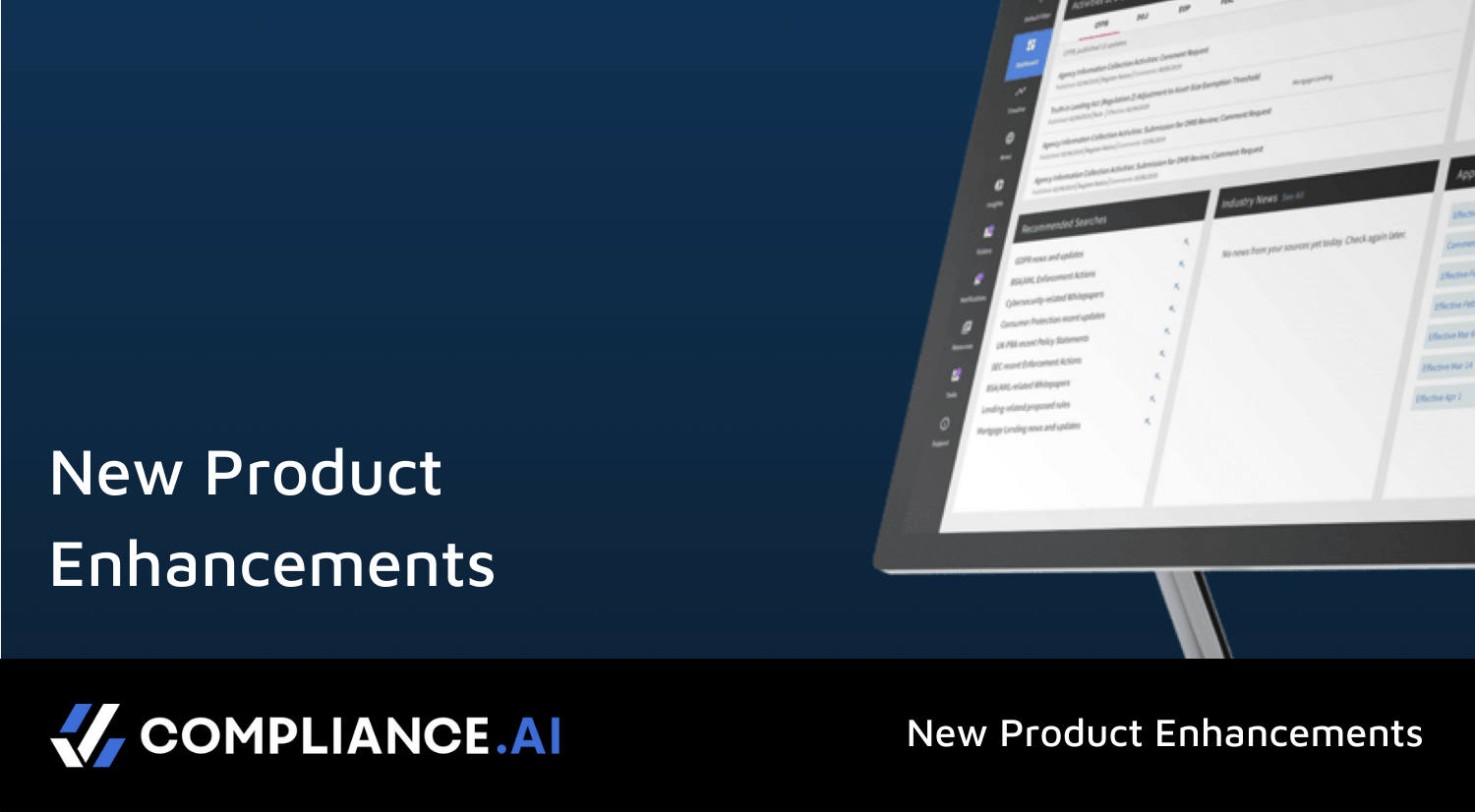2020 was a year of striking volatility for the compliance sector, with the focus of corporate risk management redirected from every daily compliance activities, to a volatile U.S. political election, to dealing with a global pandemic that seems to have changed the workplace permanently.
What is 2021 bringing already in terms of “lessons learned” for the regulatory tech compliance sector? Start with pandemic management challenges to risk management overhauls in the age of COVID – and much, much more in between – as the lessons learned for compliance leaders in 2020, and the key areas of focus in 2021.
First, the Good News
Regtech continues to grow in 2021, even as pandemic-linked distractions have taken some of the spotlight off of automated compliance solutions.
“Regtech applications continued to provide popular, embedded solutions for firms in areas such as compliance monitoring, financial crime, AML/CTF, sanctions and regulatory reporting,” notes Thomson Reuters in its 2020 Regulatory Intelligence report. “Budgets were predicted to increase, with a mix of in-house and external solutions the most frequent option selected by respondents.”
Even so, company compliance teams will likely need to lean on regtech tools more than ever in 2021, as regulatory bodies begin taking their focus away from COVID-19 and back toward traditional workplace compliance issues.
“Regulators have shown substantial forbearance in their response to the pandemic, but that patience is not infinite,” Thomson Reuter said. “Firms should be aware that the delivery of good customer outcomes is not negotiable, and that regulators and politicians alike will not tolerate any senior managers who fail to take the expected reasonable steps with regard to skill sets, systems upgrades, and cyber-resilience.”
Lessons Learned in RegTech Sector
There are silver linings in just about every angst-ridden scenario, and COVID-19 is no different. These “lessons learned” on reg-tech issues in 2020 should help compliance officers better deal with regulatory issues going forward.
Refocusing on reality. With so much additional time at home during lockdowns to reflect, and with a more lenient regulatory landscape as public and private enterprises focused on the pandemic, compliance managers are taking a big picture approach with reg-tech in 2021.
“The business impact of the pandemic has made firms think about what regtech can, cannot, or should not do for them,” The Reuters report states. “They will increasingly need to flex their approach to better deal with limited budgets and understand that there is no ‘one solution fits all’ option.”
Realizing what regtech compliance does well – and do more of it. At the start of 2020, eyebrows were raised in compliance circles over a downward spiral in industry value (regtech investments slid from $4.3 billion in 2018 to 2019, although growth is expected to $12.23 billion by 2023, KPMG reports.)
Even so, compliance managers who have embraced regtech tools and want their companies to invest in more them should reinforce the benefits of the technology to their financial officers, their peers, and to regulators – especially in volatile times.
Expect compliance officers to push regtech’s “big benefits” to promote investment, such as:
— Real-time monitoring that ensures ongoing compliance with different regulations
— Reduced cost impact on company compliance (studies have that rate reduction figure at up to 40%)
— Regtech’s proven ability to handle fraud detection, boost risk management efforts, and its faster and more efficient regulatory requirement tools and applications.
Fill the burgeoning demand for regtech solutions and services. According to the Thomson Reuters 2021 Regulatory Intelligence report, “70 percent of firms reported the virus had increased their reliance on technological solutions, rising to 81 percent in the global systemically important financial services institutions (G-SIFIs) population.”
With the cost of compliance continuing to grow – it now takes approximately 20 percent of a business’s total budget to properly comply with an ever-burgeoning amount of regulatory requirements – companies can look at the regtech compliance sector as a genuine play – a leaner, more efficient and more cost effective way of running an increasingly complex and costly compliance operation for years to come.
The Takeaway on Regtech Lessons Learned for 2021
The good news is that more firms are turning to regtech as a compliance strategy at a time when change and volatility dominate the regulatory landscape.
According to the Reuters report, 32% of firms said their budget for regtech solutions would grow in the next 12 months while 25% said the budget will stay the same.
That’s a positive sign for the regtech industry and a pragmatic one for companies looking to handle multiple challenges on the regulatory compliance front, including the evolving remote work revolution, a new regime in Washington, D.C. that will be more aggressive on the compliance front, and higher company-wide costs for compliance regulation, among other issues.
No question, it will be up to internal company influencers and persuaders to steer their companies away from manual-based compliance strategies to more automated, efficient and cost-effective compliance platforms.
That’s where smart regtech strategies can help – and help is what compliance teams need in what’s shaping up to be a volatile and demanding regulatory environment for 2021.

 Automatically monitor regulatory updates to map to your internal policies, procedures and controls. Learn More
Automatically monitor regulatory updates to map to your internal policies, procedures and controls. Learn More



